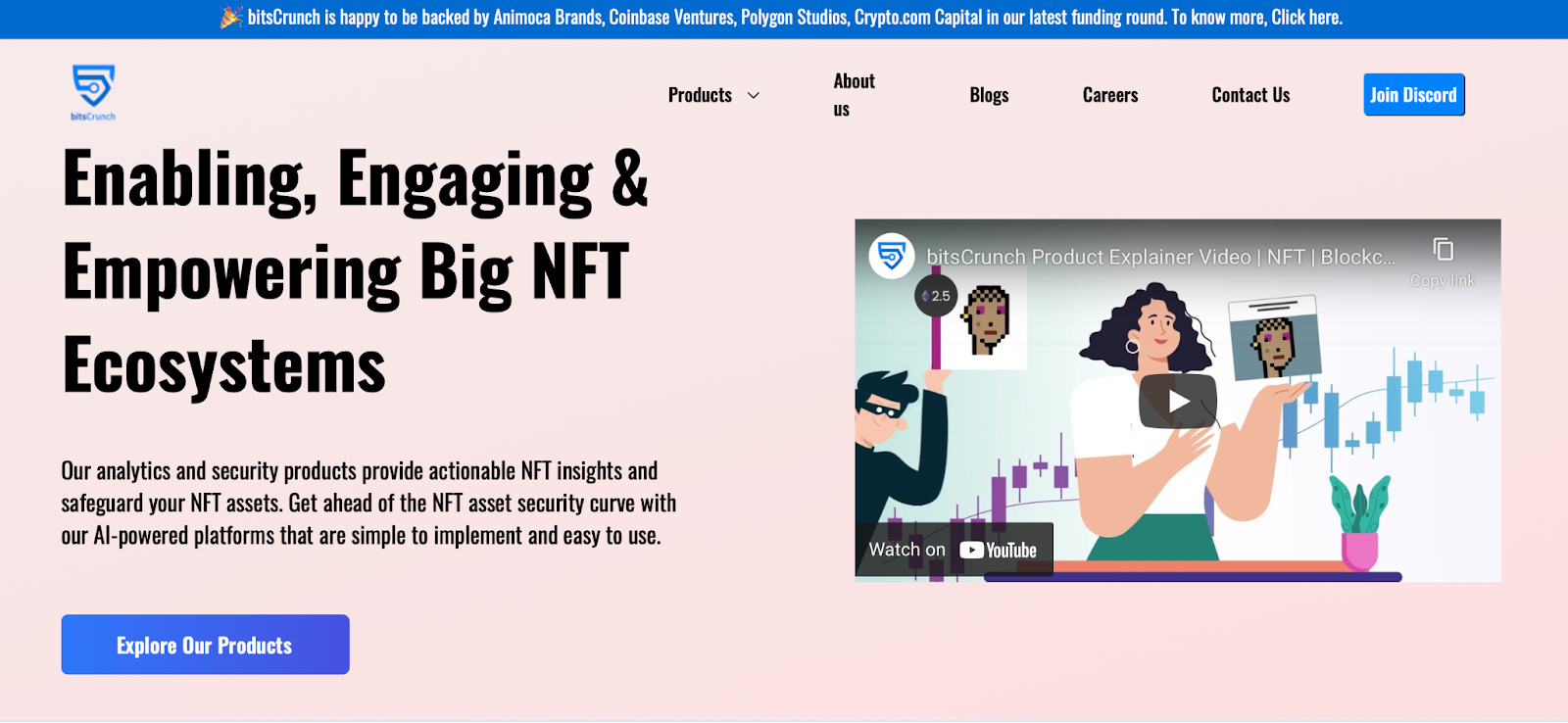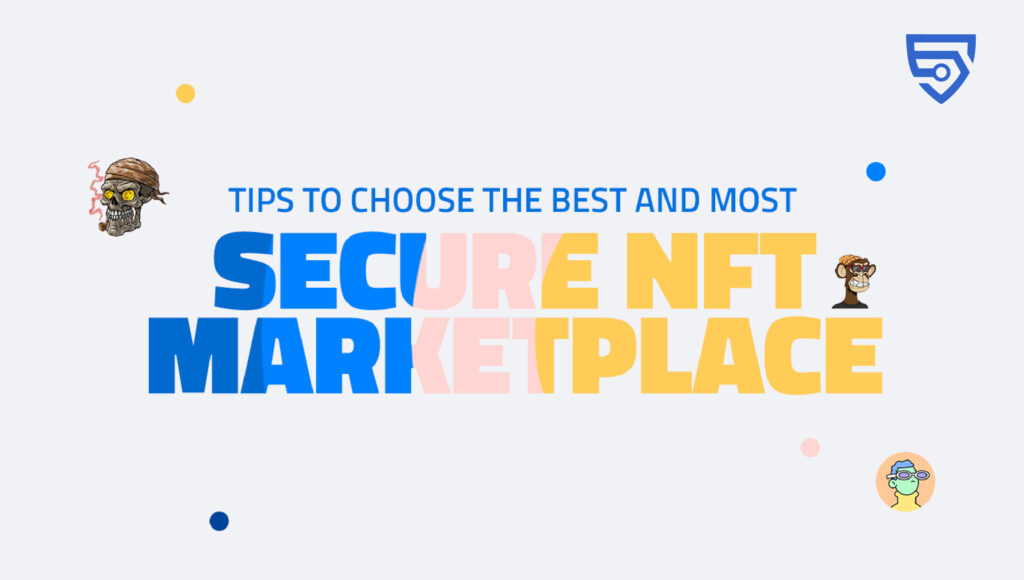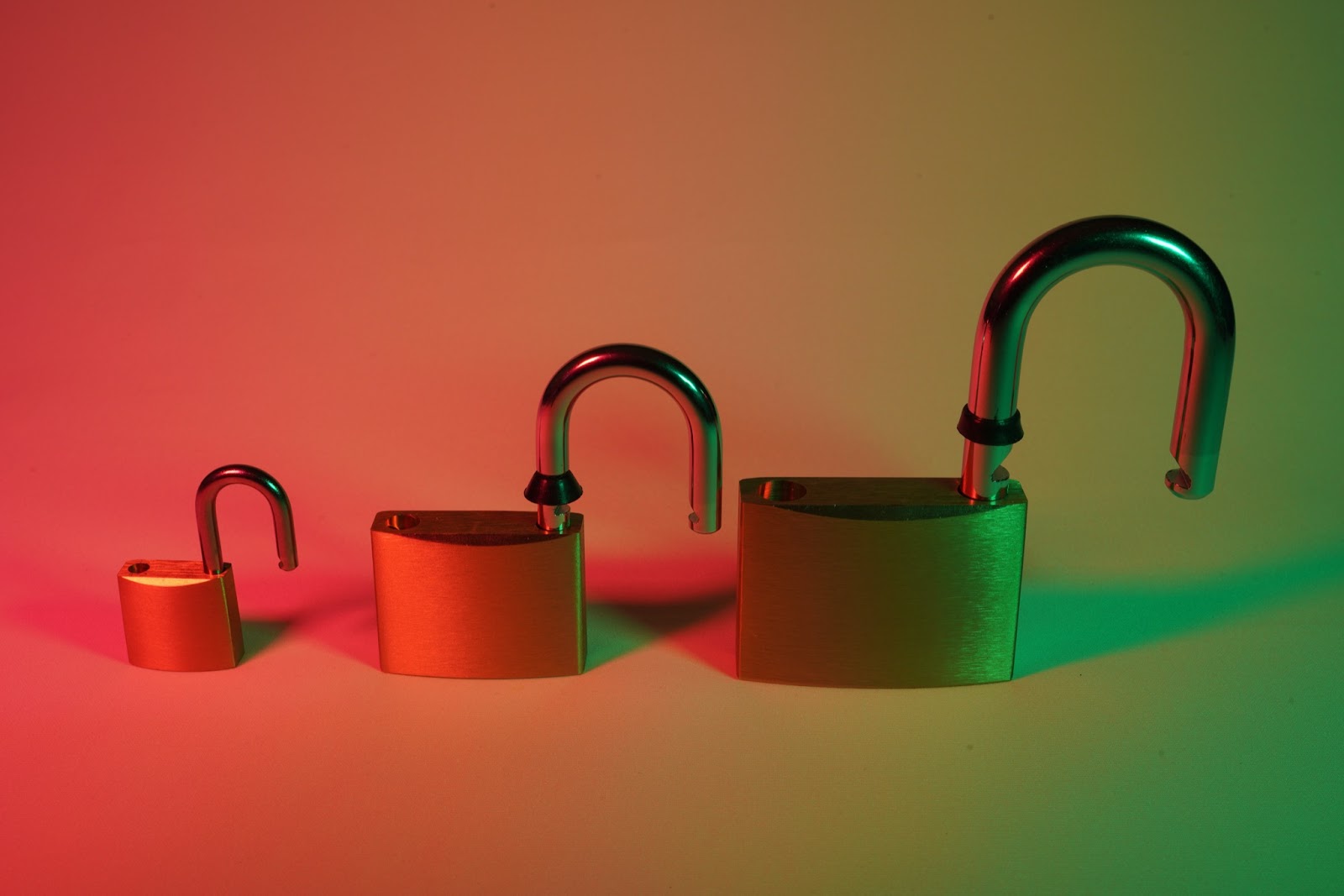The NFT craze is in high spirits since this new term sweeped the internet early last year. Since then, there has been a staggering spike in the NFT trading volume, amounting to over 21000% in a single year. Everyone has got their eyes on NFTs. From mega apparel companies like Nike and Adidas to nearly all of the top celebrities like Snoop Dogg, Eminem, Jimmy Fallon, Stephen Curry, and Madonna have jumped in on the bandwagon. Even investment gargantuan Mark Cuban is bullish on the NFT ecosystem and is the holder of BAYC NFT.
With popular social media platforms like Tik Tok already incorporating NFTs in their app and Instagram second in queue, it’s testament enough to depict the popularity of these digital assets. When everyone is getting their hands upon these rare and one-of-a-kind digital assets, why shouldn’t you? Therefore, this guide will help you with some of the top tips on choosing the best and the most secure NFT marketplace to kickstart your NFT journey.
What Are NFTs?
A non-fungible token (NFT) is a form of digital representation of physical assets that are tradable and verified on the blockchain. For example, a video game avatar, a piece of artwork, a master file of your music. Even tweets and popular memes have found their way on the blockchain and are minted as NFTs. Non-Fungible-Tokens (NFTs) directly affect the internet ecosystem’s economics, scalability, and stability.
Even if NFTs haven’t become mainstream (which is not the case), some highlights about the NFT ecosystem are worth considering;
- In the year 2021, Polygon has traded 391M USD in Volume, 31.1k collections, 24.9M NFT’s and 8.06M wallets.
- In the year 2021, Ethereum has traded 18.3B USD in Volume, 21.4k collections and 2.14M wallets.
While NFTs are making people rich, it is worth noticing that more and more marketplaces have emerged due to growing demand. Most have heard about NFT marketplaces like OpenSea, Nifty Gateway, LooksRare, Mintable, etc. However, it’s important to understand the various intricacies involved with the NFT marketplaces, the pros and cons before choosing one. This is because there is downside potential associated with many NFT marketplaces—often referred to as wash trading.
Understanding NFT Wash Trading
NFT platforms, of late, have suffered from a mal-practice known as wash trading. As NFT Enthusiasts tend to care less about the various aspects governing the value of an NFT, platforms don’t take concrete action about the wash trading. As a result, many NFT collections are traded between the same wallets to increase the trading volume and subsequently shoot up the price.
Wash trading is hazardous as new NFT buyers are prone to spoofing and can potentially lose a considerable sum of money if invested in a bogus project or collection. A report from bitsCrunch suggests that people lost nearly half a million dollars to NFT wash trading in 2021 alone.
How To Save Your NFT Investments From Wash Trading
Choosing the best NFT marketplace to trade NFTs is one sure way to be safe from wash trading, but it is not enough. As NFTs reach more people, it involves more risks than ever before. So, how can you prevent wash trading and keep your portfolio and investment safe? Well, we have summarised some strategies for you to consider before choosing an NFT marketplace to transact NFTs.
- Project Offerings—Single or Multiple
You may prefer a marketplace that specialises in a single project or offers a variety of projects. While both have advantages and disadvantages, a single project marketplace can be more trustworthy because it focuses solely on a single subject. In contrast, a multi-project marketplace provides a more diverse range. When looking for the best NFT marketplace for you, it’s critical to find the balance between authenticity and variety.
- Marketplace Rating
Most of the best NFT marketplaces provide all of the information about their forum, including testimonials, analysis, and data specific to the NFTs traded on the platform. So, you can make an informed decision as to whether to buy NFTs from these leading NFT marketplaces or elsewhere.
- Marketplace Verification Process
With the growing popularity of NFT marketplaces, impersonators preying on unsuspecting buyers and collectors also increase. As a result, you’d want to ensure that a marketplace’s verification process is stringent enough to keep unsavoury creators out. Ensure the marketplace has a solid verification process to prevent malicious activity. It should, for example, include a two-factor authentication process, such as a code or biometric identification, to ensure that only the original creators can access their account.
- Gas Fees
Blockchain utilises energy to process a transaction, and processing incurs fees. This fee is known as gas fees. Ethereum gas fees are the highest at the moment. When choosing the best NFT marketplace, you should check whether the marketplace offers competitive gas fees to process transactions.
- Price Discovery
When you join the NFT Marketplace to trade your artwork, the price discovery feature allows you to estimate the excellent value enticing buyers. Similarly, buyers can use the price discovery feature to make comprehensive purchasing decisions before spending thousands of dollars on a worthless collectible.
- Fractionalisation of Tokens
Token fractionalisation enables collectors to purchase cherished NFTs in fragments rather than entirely. Moreover, fractionalisation is favourable to both buyers and sellers. Instead of waiting for the maximum price in an open auction, as a seller, you can sell your collectible in parts and allocate ownership in the smart contract. Buyers can also become part owners of an NFT without breaking the bank.
Fractionalization makes NFTs available to almost anyone who can part with the smallest amount requested by the collector. It promotes mass adoption, which the industry requires to flourish.
Do You Need an All-In-One Analytical Platform for NFT trading?
Even when summarising all of these strategies, it is essential to note that a typical buyer or NFT lover will hardly check all these criteria in an NFT marketplace. The reason is pretty simple. You have to purchase an NFT even before it is trending and has the potential to give good returns. As soon as any NFT becomes trending, the floor price shoots up massively, leaving you wondering whether to shell-out your cash or wait for another opportunity. The initial NFT trend is like a water bubble, and you have to react before it bursts.
Now that you have the best strategies, you may still find it hard to check the platform for each one mentioned. What if there was a platform that evaluates all NFT marketplaces for all these best practices. One such platform is bitsCrunch.
Introducing bitsCrunch- Guardians of The NFT Ecosystem

Scouring the best NFT marketplaces is not impossible, but it is becoming increasingly difficult nowadays. With many options available and new entrants flooding the ecosystem every day, limiting your search and conducting thorough research becomes a tiresome journey. bitsCrunch streamlines the NFT experience of users by providing comprehensive analytical research about the best NFT platforms and NFT collections. Artificial Intelligence-based analytical tools of bitsCrunch help users in:
- Detecting the wash trading on NFT marketplaces and collections.
- Get the best value for NFTs.
- Prevent artwork from forgery and duplication.
bitsCrunchs’ Vision For Best NFT Marketplaces
The company is on a mission to safeguard NFT platforms and save users from any possible wash trading behaviour. Some of the critical aspects of the company are:
- Increase the liquidity of NFTs to expedite their acceptance among general users.
- To provide a seamless NFT marketplace that boasts an asset’s authenticity.
- We create models to calculate the accurate valuation of assets.
- Produce customised industry comparisons and market positioning to assist projects in better understanding their customers and facilitate marketing prospects.
How bitsCrunch provides a safe NFT experience to its consumers, read along to find out.
bitsCrunch Ecosystem
bitsCrunch has four main pillars to detect wash trading in NFT marketplaces and caution people about the same.
- bitsCrunch Unleash NFT
Unleash NFTs is an instantaneous portfolio tracker and an analytical dashboard that helps you monitor your preferred NFT collections at any time and from any location. The AI-based tool helps you understand and improve your NFT holdings’ value.
- bitsCrunch Scour
Scour is an AI watchdog capable of detecting spoof transactions that manipulate the NFTs volume and value.
- bitsCrunch Liquify
Whether you are an NFT buyer, getting the best valuation for your NFT is a wish. Liquify functions as an accurate and reliable valuation assessor of NFT assets using Artificial Intelligence, taking sale history, metadata, and other vital features into account. As a result, you will only pay the actual value of NFT.
- bitsCrunch Crunch DaVinci
At one point, we get bored of looking at the NFTs trying to copy Bored Ape, CryptoPunk. These newly minted NFTs lack exclusivity and functionality. To protect you and your digital assets, Crunch DaVinci employs cutting-edge AI models to detect copycats, counterfeits, and illegally copied digital arts.
Final Thoughts
Investing cautiously in NFTs is more than just a piece of advice. If you follow the basic steps of investing in NFTs, you can save yourself from frauds and forged collections, not to mention you save yourself from losing money. However, it sometimes becomes a task to identify the difference. Therefore, you need to use a more advanced platform like bitsCrunch to substantiate your NFT investing choice and save your day. For more information, check out our other blogs and stay tuned on our social media handles for further updates.
The post Tips to Choose the Best and Most Secure NFT Marketplace appeared first on bitsCrunch.

